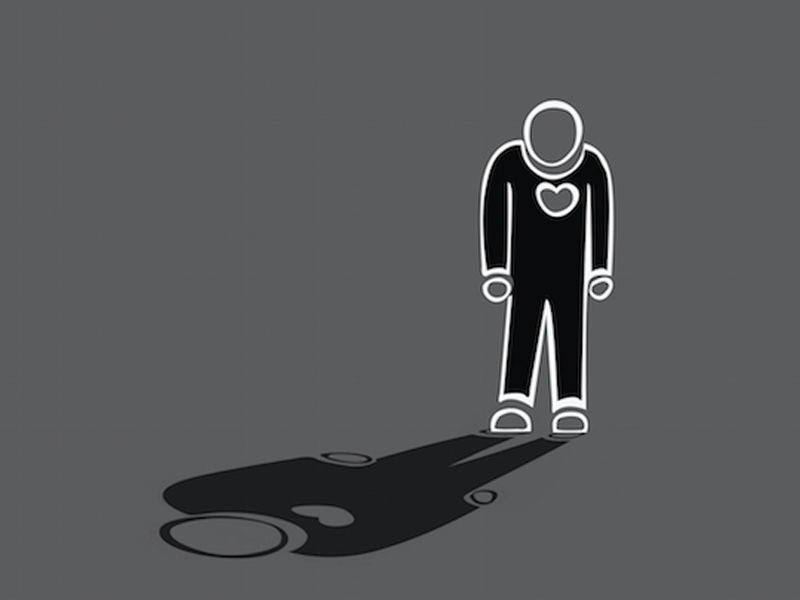Love is an intangible asset in a person’s life. It cannot be seen, but its presence can be felt. It aspires you to do powerful things to make your partner happy. The small word love of 5 characters has vast meaning. Love is pure, it is painful, it is sweet, and it is terrifying. True love is intoxicating. Our lives depend on it, and it frequently appears that our world would cease to exist if love did not exist. Endless love is something we strive for and lament when we lose it.
Psychological facts about love are so complex and indescribable that it’s essentially three feelings rolled into one that is affection, lust, and attachment. And each emotion is distinguished by its own set of hormones derived by the brain.
So here are the Psychology Facts about Love you Must Know
1. Never confuse Lust with Love

When you truly care for the person. You are always concerned about his or her pleasure; you are insecure at times, but this does not imply that you do not trust your partner; rather, you give your best to make them happy. If you have doubts about your feelings or are unsure whether a person is good for you, or if you begin criticizing your lover based on physical appearance, monetary factors, or lifestyle issues, you are not in love with them.
It’s only that you’ve conflated the meanings of your feelings, love, loyalty, and passion. When you are actually in love with them. You want to spend your whole life with them without any confusion and doubt. True love from both lovers doesn’t mean falling apart.
2. Obsession is the foundation of attraction.

While estrogen and testosterone are responsible for lust, dopamine and norepinephrine are released when one is attracted. Humans exhibit attraction in the brain areas that drive “reward” behavior, according to comprehensive studies. Brain scans of people in love showed the key reward areas of the brain lighting up when they were shown an image of someone they are extremely attracted to a person in research. This explains why the attraction component of love is founded on feelings of obsession and why the early stages of a romantic relationship can be thrilling.
3. Attachment is not limited to romance.
Attachment, the third type of love, is related to feelings of comfort and nurturing instead of infatuation and desire. These aspects in long-term partnerships are powered by the hormone’s oxytocin and vasopressin. While lust and attraction are primarily associated with romantic love, attachment can also be felt through friendships, parent-infant bonding, and even how owners feel about their pets. In contrast, when you have feelings for someone other than lust and physical wants. You begin to care for them and cope with their difficulties as if they were your own.
4. Being in love can cause a decrease in appetite.

High quantities of dopamine and norepinephrine are released during the attraction phase of love. One of the happiness hormones is dopamine, and these molecules can make people feel joyful and even euphoric. This reaction can also cause a decrease in appetite and insomnia, implying that you can be so “in love” that you can’t eat or sleep well.
Also Read Mastani Mahal: The Abode of Valiant Love
5. Being in love influences/Changes you

If you find yourself following romantic comedies when you just watch thrillers, or if you suddenly fall in love with Vegetarian Italian food when you didn’t previously, you should give credit to your spouse. According to a study published in the Journal of Personality and Social Psychology, people in love frequently have diverse interests and personality traits when they begin their separate relationships. According to one of the study’s authors, persons who fall in love have a more diversified sense of self and higher self-esteem.
Here is How Psychologists explain Love
6. Love can be a pain reliever
According to studies, strong sensations of love can be utilized as an excellent pain reliever, behaving similarly to illicit narcotics like cocaine. If both partners genuinely love/feel for each other. When you are more than just friends, you understand each other’s difficulties, situations, thoughts, and habits of conduct. There is one constraint here: one-sided love is not a pain healer. It might deteriorate and become a source of depression and anxiety in one’s life.
7. Love is Blind

When you are truly in love with someone. You begin to ignore their flaws, terrible behavioral habits, negative emotions, monetary factors, and physical appearances. According to research, the experience of love deactivates the brain pathway responsible for negative emotions such as fear and social judgment. As a result, when you begin to fall in love, your capacity to make vital decisions is impaired.
8. Love can cause you sick
Love is compared to a two-wheeled vehicle. A two-wheeled vehicle, such as a bike or a cycle. It will not be able to run on just one wheel. Your relationship also works when you and your partner both put extra effort into keeping each other happy. One-sided effort and emotional feelings in a relationship can make you unwell because it increases your expectations from your partner. According to studies, because they elevate cortisol levels. Cortisol is a stress hormone that has been demonstrated to impair immune function, making you more susceptible to illness.
Also Read, Best Pakistani Dramas That Every Fiction Lover Should Watch
9. Being thankful can help to enhance relationships.
Everyone desires to be cared for and valued. Gratitude has also been shown in research to improve relationships. One study, for example, discovered that couples who took the time to express thanks to their partner felt not just more favorable toward the other person but also more comfortable discussing worries about their relationship.
10. Love can hurt you

Love can be painful at times, and being “”heartbroken””is a real emotion, not merely a mental state. IIt’sknown as shattered heart syndrome. Heart syndrome is a weakening of the heart’s primary pumping chamber caused by significant emotional or physical stress, such as the death of a loved one or a traumatic accident, betrayal, and cheating. If your partner betrays or defrauds you, uncertain death. If you don’t control your emotions, you can get hurt and develop various physical and mental illnesses.



























